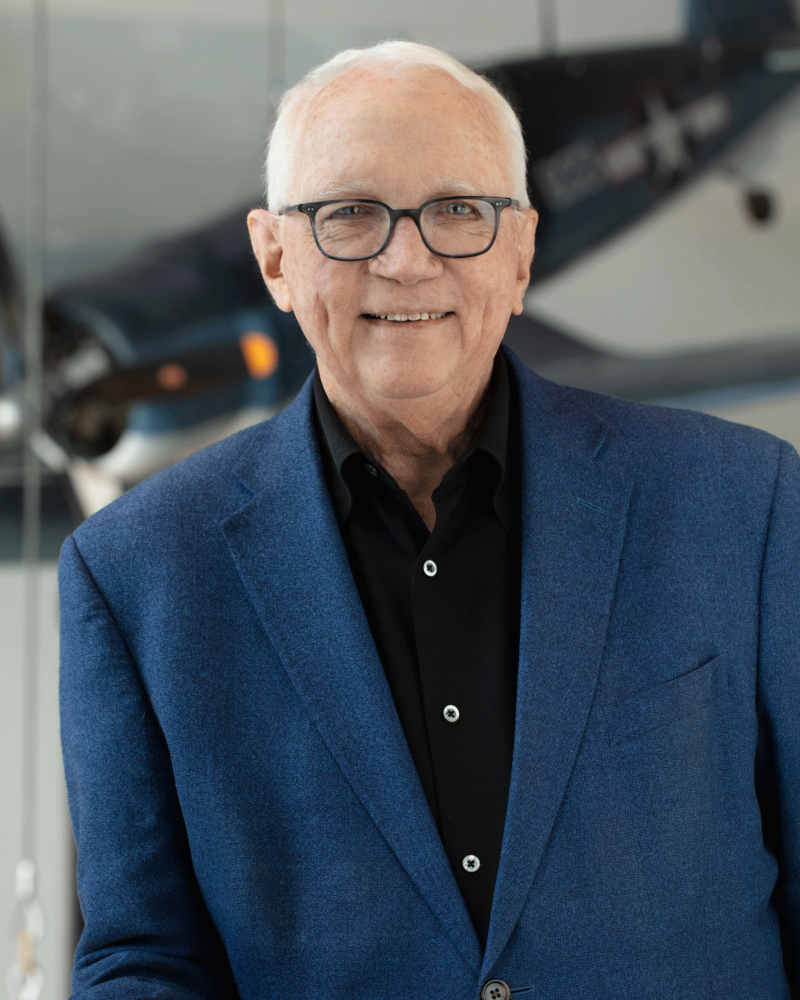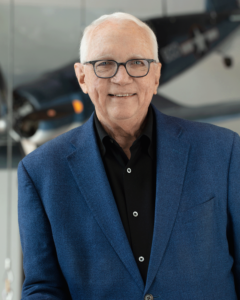The Man Who Won The National WWII Museum
Gordon H. “Nick” Mueller, PhD, is the 2024 Champion of Culture
Published: June 1, 2024
Last Updated: September 1, 2024

Photo by Jeff Johnston
Gordon H. “Nick” Mueller is the 2024 Champion of Culture.
On June 6, 2000, a dedicated group of individuals led by Gordon H. “Nick” Mueller opened a D-Day museum in a warehouse in downtown New Orleans. Now known as The National WWII Museum, that first building has morphed into a six-acre campus covering the entirety of the American experience of the war. Congress has recognized it as the country’s official World War II museum, and millions of visitors have passed through its doors. In 2023 Tripadvisor ranked it the third most popular museum in the United States. In 2018 it was on Tripadvisor’s list of top ten museums in the world.
But the museum had a long, rough road to all that success. It began when celebrated historian Stephen Ambrose wanted a place to showcase over 1,200 oral histories he had accumulated from veterans while researching D-Day, the Allied invasion of Normandy that became a turning point in the war. Ambrose turned to Mueller, his friend and colleague, who at the time was in charge of developing a research park for the University of New Orleans. Would Mueller be interested in adding a small museum to the plans?
“[Ambrose] thought it’d be a million dollars,” recalled Mueller. “And I said, ‘You don’t know anything about these things. It could be at least four million.’”
Try $500 million. That was the final price tag when the museum completed construction—thirty-three years after Ambrose and Mueller’s initial conversation. The majority of the development, fundraising, and expansion happened under Mueller’s leadership; Mueller served as founding president and CEO until 2019, enduring challenges like multiple bankruptcies and Hurricane Katrina along the way. Despite the discouragements, Mueller remained committed to making this educational institution accessible for all.
As for Ambrose, he saw the museum’s grand opening but passed away in October 2002, well before he could witness his 15,000-square-foot dream blossom into a 400,000-square-foot reality. Mueller mused on what his friend would have thought of where the museum is today, given their earlier setbacks: “He would have said, ‘I knew we could do it.’”
“[World War II] was the defining event of the twentieth century, but it’s even bigger than that,” said Mueller. “There’s nothing since the beginning of civilization that compares for the number of people killed, including civilians . . . People need to understand that [World War II] is both a beacon to the past and a beacon to the future.”
Morgan Randall is a writer in New Orleans.
